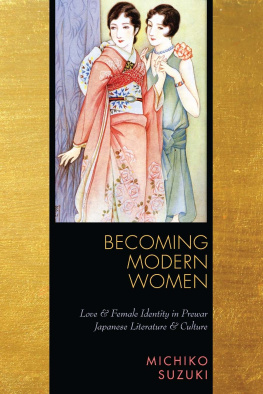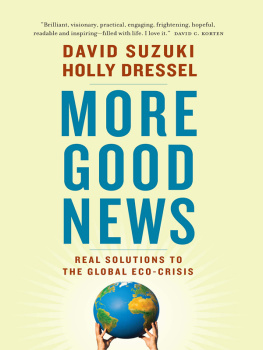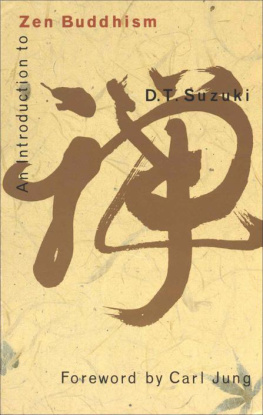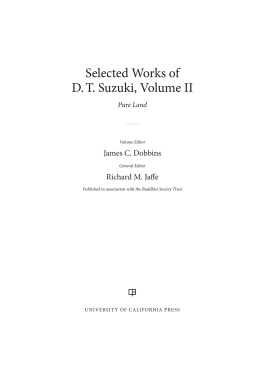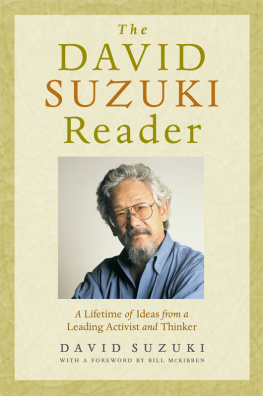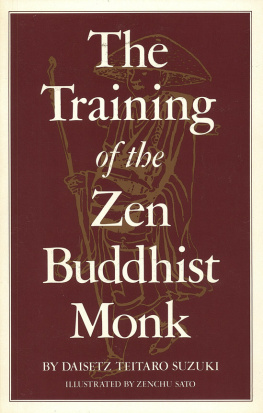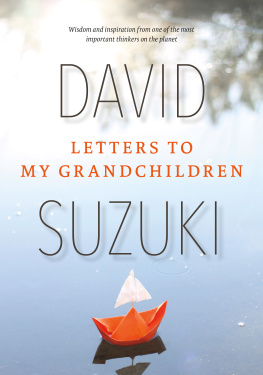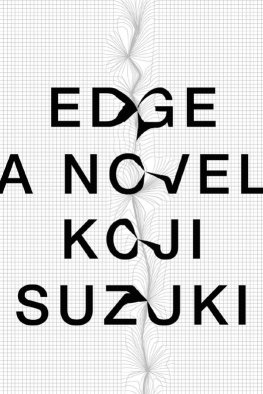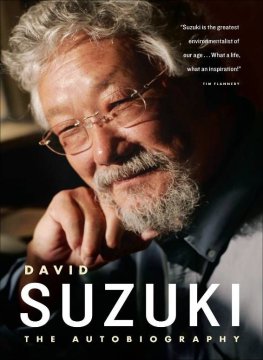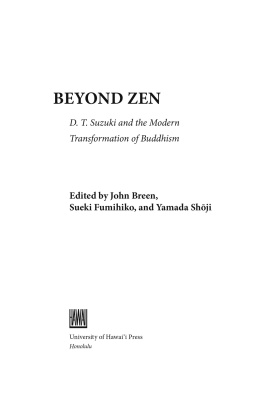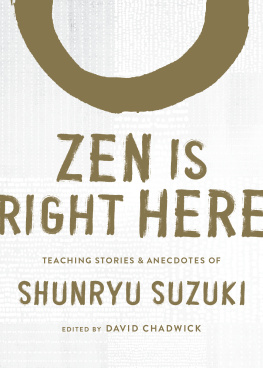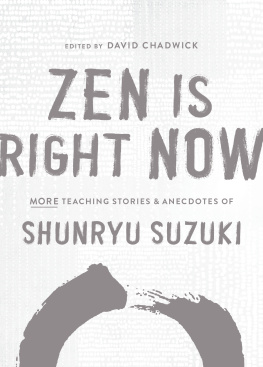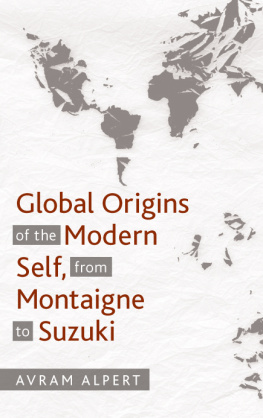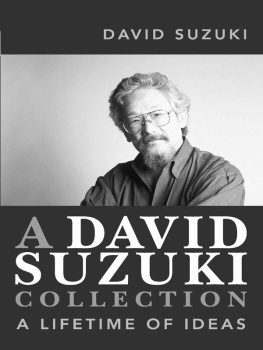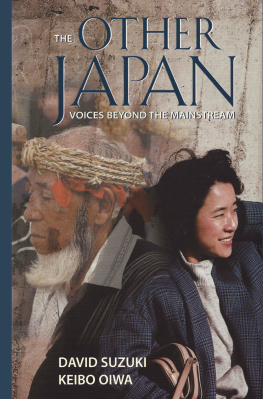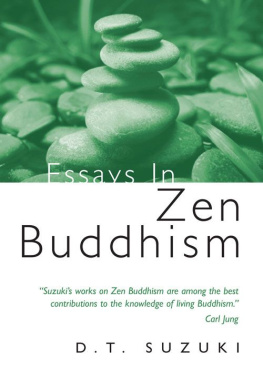Suzuki - Becoming Modern Women
Here you can read online Suzuki - Becoming Modern Women full text of the book (entire story) in english for free. Download pdf and epub, get meaning, cover and reviews about this ebook. year: 2011, publisher: Stanford University Press, genre: Home and family. Description of the work, (preface) as well as reviews are available. Best literature library LitArk.com created for fans of good reading and offers a wide selection of genres:
Romance novel
Science fiction
Adventure
Detective
Science
History
Home and family
Prose
Art
Politics
Computer
Non-fiction
Religion
Business
Children
Humor
Choose a favorite category and find really read worthwhile books. Enjoy immersion in the world of imagination, feel the emotions of the characters or learn something new for yourself, make an fascinating discovery.
- Book:Becoming Modern Women
- Author:
- Publisher:Stanford University Press
- Genre:
- Year:2011
- Rating:4 / 5
- Favourites:Add to favourites
- Your mark:
- 80
- 1
- 2
- 3
- 4
- 5
Becoming Modern Women: summary, description and annotation
We offer to read an annotation, description, summary or preface (depends on what the author of the book "Becoming Modern Women" wrote himself). If you haven't found the necessary information about the book — write in the comments, we will try to find it.
Becoming Modern Women — read online for free the complete book (whole text) full work
Below is the text of the book, divided by pages. System saving the place of the last page read, allows you to conveniently read the book "Becoming Modern Women" online for free, without having to search again every time where you left off. Put a bookmark, and you can go to the page where you finished reading at any time.
Font size:
Interval:
Bookmark:
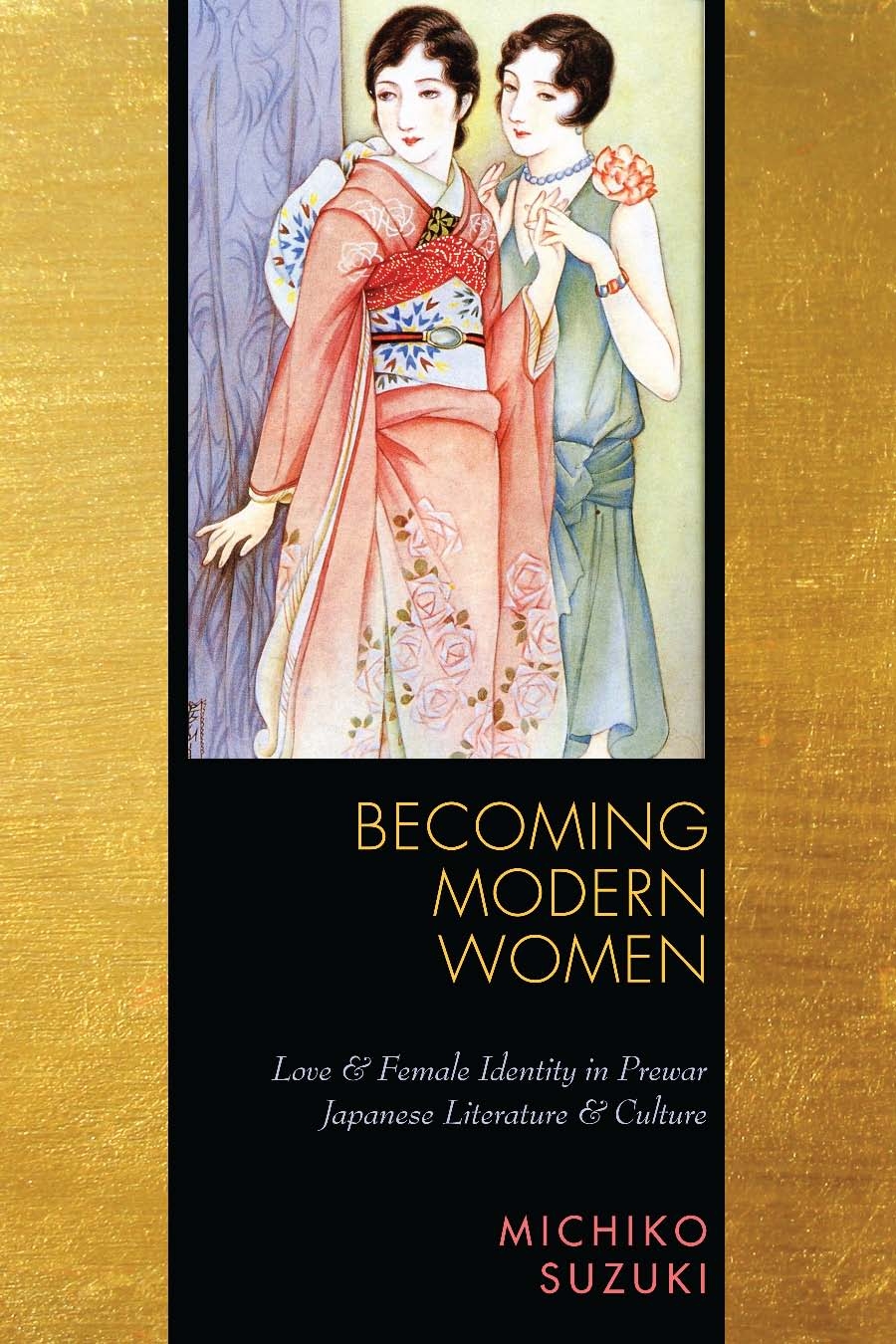
Many years have gone by since I began working on this project, and many people have helped bring this book into existence. I have been inspired and encouraged by my teachers, colleagues, friends, and family; it is impossible to list everyone here, but I am truly grateful for their support. I am especially indebted to my mentors at Stanford University. In particular, I thank Jim Reichert and Susan Matisoff, who helped me to reconsider various aspects of my work with insightful comments and critique. Their guidance in matters both intellectual and practical continues to be invaluable. Peter Duus has also provided me with constant support and encouragement. During my early graduate years I was fortunate to be able to study with Professor Makoto Ueda. At Stanfords East Asian Library, Naomi Kotakes expertise and generosity greatly helped facilitate my research.
I am grateful to professors in Japan who kindly provided assistance during the research process. I especially thank Professors Komori Yichi, Toshiko Ellis, and Takada Yasunari, who generously shared their valuable time and allowed me access to resources while I conducted research at the University of Tokyo. My gratitude also goes to Kate Ellwood, who enabled me to work with materials held at Waseda University.
I appreciate the support of my colleagues at Indiana University. In particular, I thank Edie Sarra and Dick Rubinger, who have provided advice and encouragement for this project. I also thank Bob Eno, Sara Friedman, Sumie Jones, Tom Keirstead (now at the University of Toronto), Wen-ling Liu, Mike Robinson, and Heidi Ross.
Many colleagues and friends helped me in a variety of ways while I worked on this project. My gratitude goes especially to Abe Sachiko, Suzy Cincone, Claire Cuccio, Sabine Durant, Bernard Faure, Derk Frerichs, Hank Glassman, Bettina Gramlich-Oka, Henk Maier, Kumamoto Eliza, Michele Mason, Mizumura Minae, Elizabeth Oyler, Sabine Roth, Reiko Shinno, Bob Tierney, and Leslie Winston. Special thanks go to Annette Keogh and Leslea Haravon-Collins, who have supported me in this process from beginning to end.
I am grateful to Stanford University Pressespecially to Stacy Wagner for her enthusiasm and insight. I am extremely appreciative of the perceptive comments offered by the readers of this manuscript. Sarah M. Strongs feedback has been invaluable, and I thank Mariana Raykov and Jessica Walsh for assistance during the production process. Several sections of this book have appeared in earlier forms as part of other articles. Where appropriate, I provide previous publication information at the beginning of each endnote section.
I received institutional funding and fellowships at various stages of my endeavor. I thank Indiana Universitys Department of East Asian Languages and Cultures, the East Asian Studies Center, the Office of the Vice Provost for Research, and the Office of the Vice President for International Affairs. Prior to my employment at Indiana University I also received research support from Dickinson College and the Japan Society for the Promotion of Science. At Stanford University I received a doctoral scholarship as well as additional fellowships from the Stanford Humanities Center, the Center for East Asian Studies, and the Institute for International Studies.
My family, both the Fosters and the Suzukis, were understanding and helpful while I worked on what must have seemed to them to be a neverending project. Thank you, Jerry Foster, for your hospitality and your intellectual curiosity that I can only hope to emulate. I wish this book would have appeared in time for Joan, but I know she approves nevertheless. I also thank Kenichir Suzuki, Adam Foster, and Ann Ayton. Most of all, I thank Tatsuo and Yumi Suzuki, my wonderful parents. Their unwavering support for whatever I do has sustained me over the years. I have learned much from their belief in learning, their love of history and literature, and their zest for life. I dedicate this book to them.
Finally, Michael Dylan Foster has patiently read each draft of this book, engaged me in debate, and offered valuable critique at every step. My work, to say nothing of every other aspect of my life, has been enriched by his presence. There are simply no words available for me to use to adequately express my thanks, but I think he knows how I feel.
In this book I have examined how discourses of love informed prewar concepts of female development and identity, and shaped the connection between gender and modernity. Using various ideas about same-sex love, love marriage, and maternal love, the women writers discussed here engaged profoundly with modern love ideology and the notion of loves progress. Beginning in the 1910s, Yoshiya Nobuko inserted same-sex love into the ideal course of female maturity, reworking sexological and early feminist notions about this love. While writing in different literary genresgirls fiction, pure literature, and popular literature for womenshe underscored same-sex love as an important part of modern female identity. Miyamoto Yuriko erased from the 1928 version of Nobuko as well as from its postwar interpretations the traces of love marriage ideology that had informed the 19241926 version. By analyzing Nobukos story through its conversation with love marriage discourses; its ideas about reproduction, health, and divorce; and the emerging concern with class and sexual politics, we can retrieve the lost meaning of the Nobuko narratives. Okamoto Kanokos late works portray maternal love as a powerful force that transcends the linear trajectory of betterment and completes the mythic female self. This rereading of the process of female development is part of the growing complicity of feminism with nationalism during the 1930s. By endorsing maternal love as the definitive aspect of female identity, however, her novels also illustrate the endpoint of modern love ideology. Okamotos narratives must be read in tandem with feminist and nationalistic discourses about maternal love, with native ethnologys reclaiming of national identity, and with historical interest in matriarchy and matrilineality.
One of my goals in Becoming Modern Women has been to offer a new approach to these three prewar Japanese writers by reading their works not through the lenses of autobiography, literary traditions, or the unified notion of female authorship, but as texts produced within specific socio-historical contexts, in dynamic conversation with a range of contemporary ideologies and issues. All the authors I examine were deeply influenced by prewar feminist discourse, and their works reveal unexpected meanings and complexities when read with ideas such as modern love ideology in mind. These writers also wrote intertextually, drawing on other prominent fields of knowledge, such as sexology, love tracts, and historiography, as well as other contemporary works of literature. Throughout my exploration I have endeavored to show the often overlooked connections between texts, ideologies, and debates, in ways that I hope help to illuminate both the literature and the history of the 1910s to 1930s.
My other goal has been to provide a new way of looking at love, an elusive notion recognized as an important factor in the development of modern Japanese literature. Discussions of love in the context of Japanese literary scholarship have focused on such issues as whether or not love is really a Western import from the Meiji period, how male and female characters experience love differently, or the relationship between love and sexuality. Love has always been a complex topic for analysis because it requires us to recognize that although human affection is a widely shared emotion and experience, its understanding and presentation change in different sociohistorical and literary/cultural settings. My approach is distinct from other investigations in that I focus on prewar modern love ideology and on specific forms of love that contributed to the creation of modern Japanese female identity.
Font size:
Interval:
Bookmark:
Similar books «Becoming Modern Women»
Look at similar books to Becoming Modern Women. We have selected literature similar in name and meaning in the hope of providing readers with more options to find new, interesting, not yet read works.
Discussion, reviews of the book Becoming Modern Women and just readers' own opinions. Leave your comments, write what you think about the work, its meaning or the main characters. Specify what exactly you liked and what you didn't like, and why you think so.

